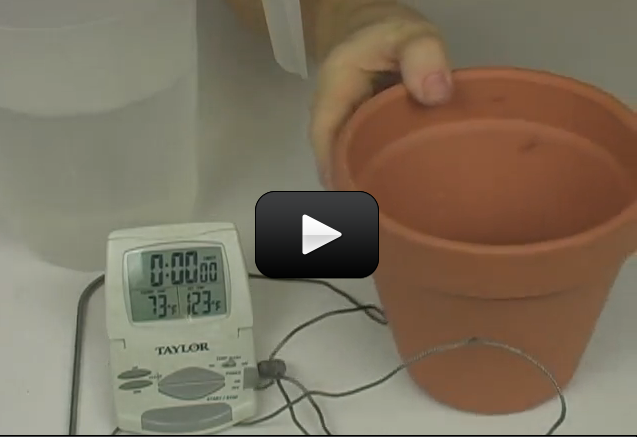The evaporation of water for cooling purposes is called evaporative cooling. An important example of this type of cooling is the removal of body heat by humans through sweating. When your body needs to cool, perspiration is released to the surface of your skin where it evaporates. The evaporation of the water in the perspiration causes your skin to cool.
Breezes feel particularly cooling when you have perspiration on your skin. This is because the increased movement of air over your body evaporates more water from your skin than still air does. Water on your skin evaporates more slowly when the humidity is high. This is because the humid air already contains much water vapor. Humid air absorbs less water as vapor than dry air.
Electrical power plants that burn fossil fuels or use nuclear energy to generate electricity use huge water cooling towers for cooling purposes. The water to be cooled is pumped to the top of the tower and allowed to drip down through the tower. As the water moves down the tower, air from the bottom of the tower moves up through the tower, evaporating some of the falling water. The heat lost by the evaporating water cools the remaining water that is collected in a basin under the tower. One pound of water that evaporates in a tower can lower the temperature of 100 pounds (45 kilograms) of other water by nearly 50°C (100°F).
Please login or register to read the rest of this content.


Substances such as pepper and sugar do not react with the ice the way salt does. Salt (sodium chloride) is dissolved by the usually thin layer of water on the surface of the ice. The sodium chloride bonds with the water molecules by getting in between the strong hydrogen bonds. This lowers the freezing point of the water because it is no longer pure ice. Add more salt, and the freezing point can go as low as -9F, which could cause frostbite if held long enough. What this means is that for the water to form as ice the temperature needs to be we’ll say -9F in order to freeze again. That is why it seems like the ice is melting with the presence of salt.
I wanted to know whether ice melts faster with salt, sugar, pepper or water on its own. I’ve been searching for the answers on the internet but I am not sure if I’ve got the right answers.
The question that I am looking for is, “Does ice melt faster when water is freezed with salt, water is freezed with pepper, water is freezed with sugar or water is freezed on its own?” Research shows me that salt melts the fastest, is there any scientific reasoning behind this?
Thank you!